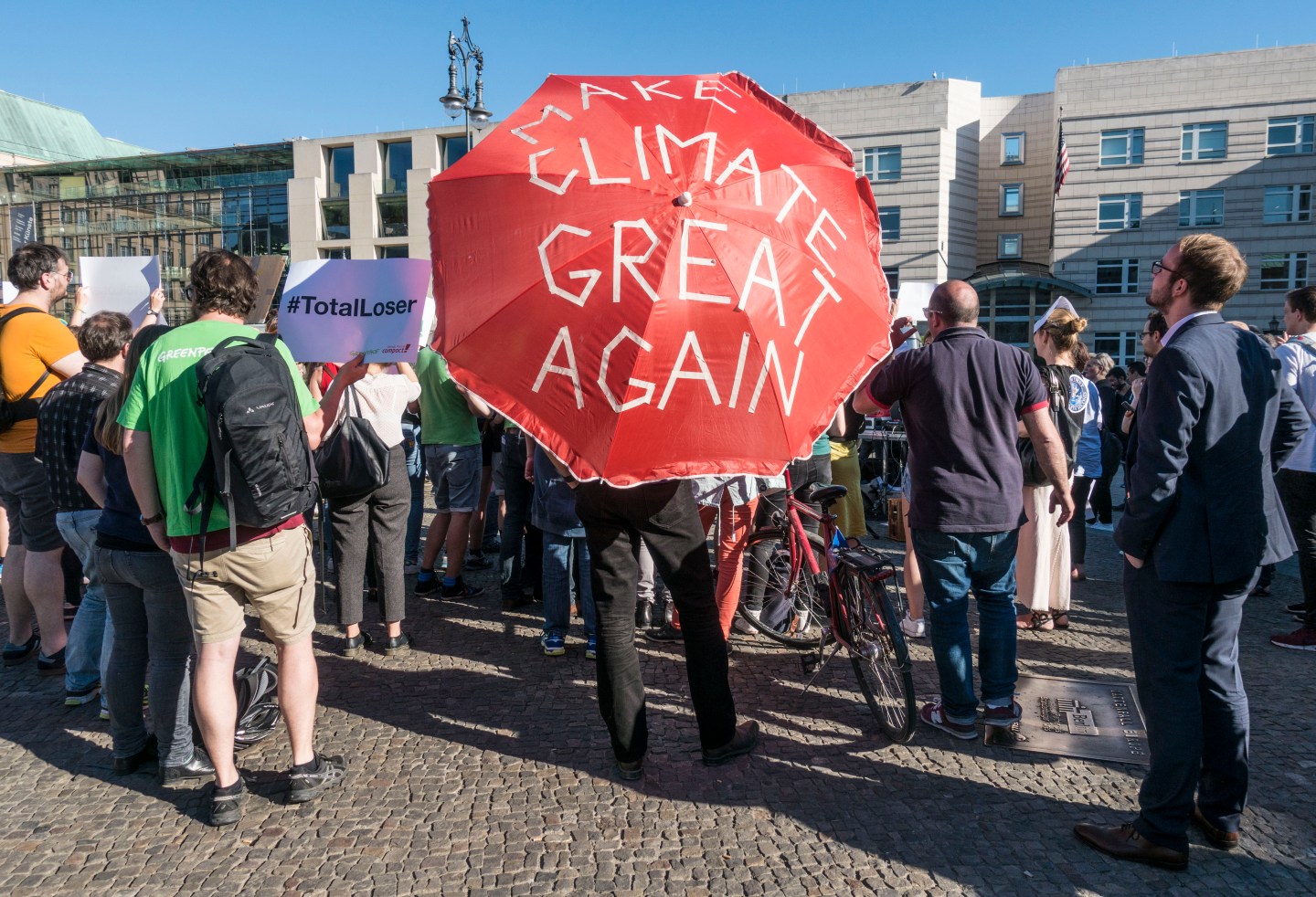Last week, The Wall Street Journal reported that President Trump was looking for a way to avoid withdrawing from the Paris climate accord. This blockbuster story quickly fizzled when top White House advisor Gary Cohn rebuffed it. But there’s a good chance it will rise again.
In August, the administration officially notified the UN that it intends to withdraw from the accord. But under the terms of the agreement, the U.S. Cannot withdraw until Nov. 4, 2019. That gives politicians and pundits more than two years to speculate about potential renegotiations of the climate agreement.
To be clear, renegotiating the pact would be a waste of time. Costly, ineffective, and unworkable, it’s beyond redemption.
Unless you work in the green-energy industry, Paris will cost you money—and lots of it. Countries that stick to their carbon-cut pledges will drive energy prices higher. This will create hardship in industrialized countries and thwart developing countries (where 1.2 billion people are without access to electricity) from attaining a better quality of life.
No amount of negotiating will change that fact.
Nevertheless, if the administration does reengage on Paris, it should insist that a new agreement:
Does no violence to the economy
Protecting our economy from costly international climate agreements was once a bipartisan idea. In 1997, months before negotiation on the Kyoto Protocol resumed, the Byrd–Hagel Resolution urged then-President Bill Clinton not to sign any agreement that “would result in serious harm to the economy of the United States.” It passed unanimously, 95–0.
Achieves meaningful results
The Paris agreement gives two of the world’s top carbon emitters, India and China, pretty much a free pass on carbon reduction. China is allowed to continuously increase its emissions until 2030. And India is committed only to improving its emissions per unit of GDP (i.e., it’s emissions can continue to increase as the economy grows)—and at a slower rate of improvement than it was already achieving. That essentially precludes any meaningful slowing of global warming. Even former secretary of state John Kerry, who led the U.S. Negotiating team in Paris, admitted, “If … all the industrial nations went down to zero emissions, it wouldn’t be enough, not when more than 65% of the world’s carbon pollution comes from the developing world.”
Stops funding the Green Climate Fund (GCF)
The GCF funnels taxpayer money to support expensive “green” energy technologies and pays for climate adaptation and mitigation programs in developing nations. The result: Developing countries are pressured to shift from cheaper, more reliable conventional fuels to expensive technologies that cannot survive without public financing. This keeps them dependent on wealthy nations and extends their risk of energy poverty.
These criteria and the Paris agreement are mutually incompatible. Renegotiation should be a non-starter.
But what if Trump does try to turn the pact into something workable? He should at least handle it in a way that doesn’t flout the Constitution—something his predecessor failed to do.
Article II, Section 2, stipulates that the president must get the Senate’s advice and consent before any treaty can bind the U.S. President Obama knew the Senate would not ratify the Paris pact, so he declared it was just an “agreement,” not a treaty. Voila, problem solved!
If sometime in the future President Trump thinks he’s negotiated a carbon reduction pact that serves the interests of the U.S., he should submit it to the Senate, thereby respecting the legislative branch’s constitutional role in foreign policy.
It’s true that now the only countries not signed up for the Paris agreement are the U.S. And Syria. But the U.S. Has no obligation to run lemming-like over the green-energy cliff. And the cost of doing so would be enormous.
While foreign leaders score political points at home by criticizing the U.S. For not joining in, they really have no room to talk. As the journal Nature notes: “All major industrialized countries are failing to meet the pledges they made to cut greenhouse-gas emissions.”
Indeed, the U.S. Continues to reduce its carbon emissions, and can do so with or without the pact. We don’t need to renegotiate. We don’t need Paris at all.
Nicolas Loris is The Heritage Foundation’s Herbert and Joyce Morgan Research Fellow in Energy and Environmental Policy.











